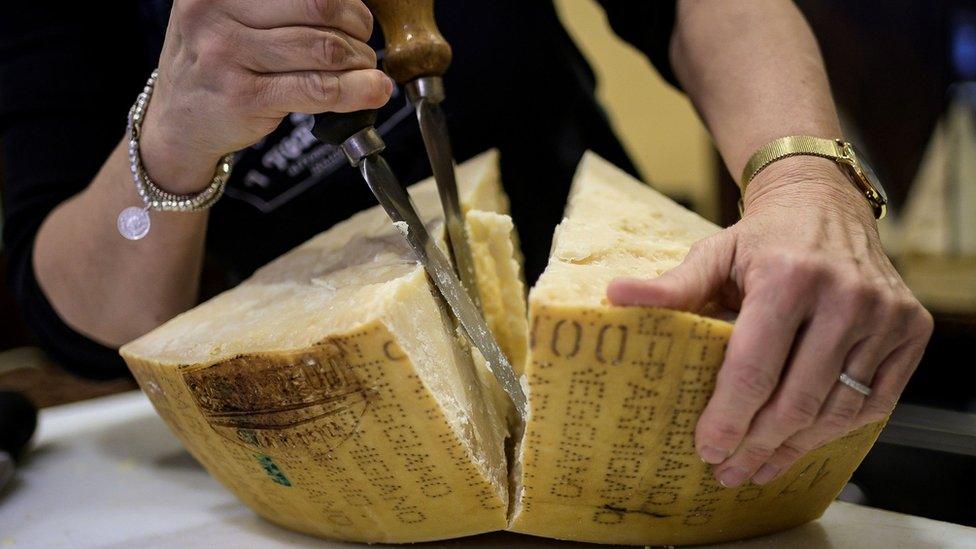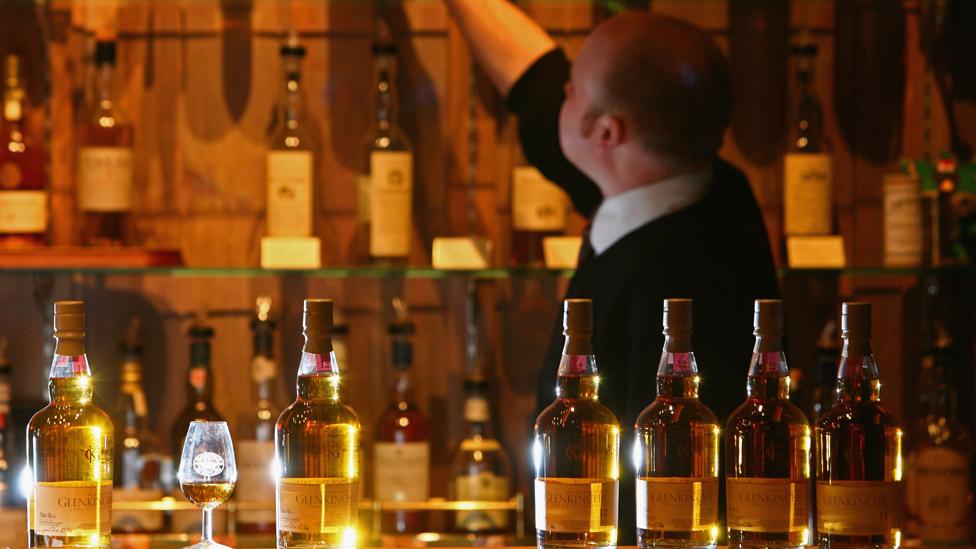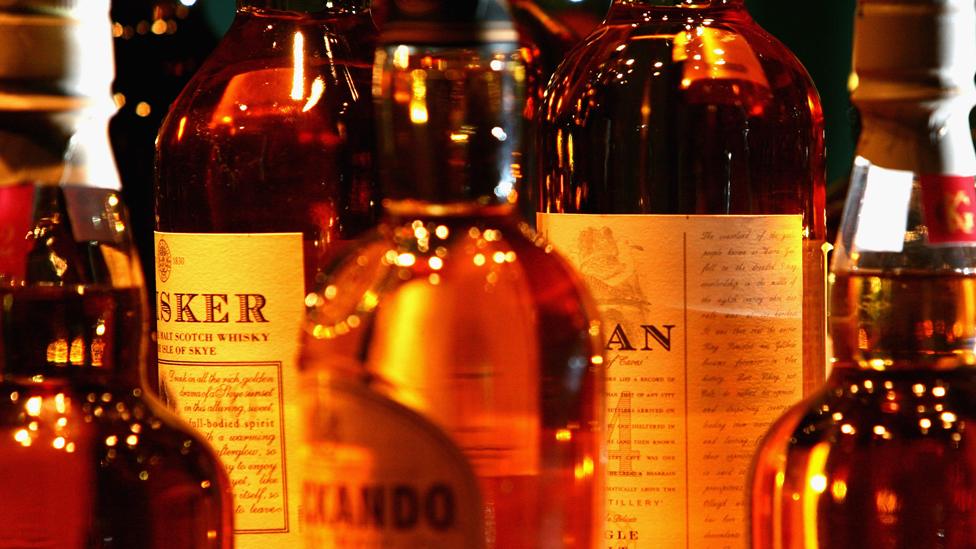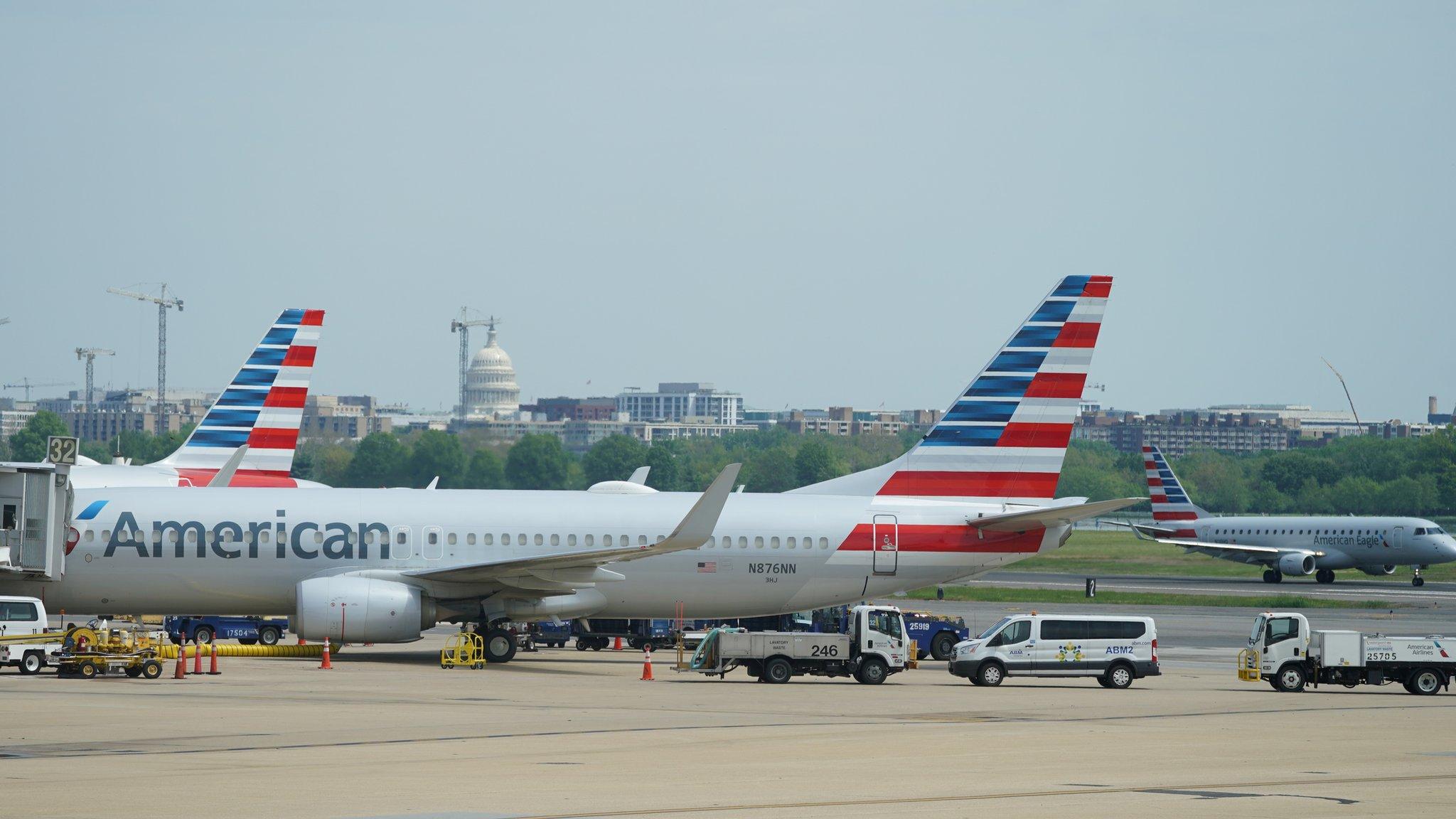US and EU suspend tariffs in Boeing Airbus row
- Published

Italian parmesan had been affected by tariffs
The US and the EU have agreed to a four-month suspension of tariffs they imposed on each other as punishment for subsidies provided to rival planemakers Airbus and Boeing.
The move affects billions of dollars worth of goods. including tractors, wine and cheese.
It comes a day after the US agreed to suspend its tariffs on UK imports stemming from the dispute.
The US said the step marked a "fresh start" to US-EU trade relations.
European Commission Executive Vice-President and Trade Commissioner Valdis Dombrovskis also called it a "reset" for the relationship, which grew strained under former President Donald Trump.
"Removing these tariffs is a win-win for both sides, at a time when the pandemic is hurting our workers and our economies," he said.
"This suspension will help restore confidence and trust, and therefore give us the space to come to a comprehensive and long-lasting negotiated solution."
WTO Boeing Airbus fight
The dispute between the US and EU over the aircraft subsidies goes back nearly two decades.
In 2019, the World Trade Organization ruled that the EU had illegally provided support to Airbus, clearing the way for the US to respond with tariffs worth up to $7.5bn (£5.4bn) in annual trade.

The US imposed tariffs on whiskey
Roughly one year later, in a parallel case, it ruled that the US benefits to Boeing also violated trade rules, authorising the EU to hit the US with tariffs worth roughly $4bn.
Since then, both sides have taken steps to remove the assistance found at fault.
However, it was not clear whether the tariffs would be lifted under Mr Trump, who had embraced such taxes as part of his trade policy, at one point calling himself a "Tariff Man".
In December, the UK said it would voluntarily suspend its tariffs on US goods. Officials said they hoped to kickstart compromise talks, casting the measure as an example of the benefits to the UK's ability to act as an independent trading nation following Brexit.
The US did not respond in kind until this week.
- Published4 March 2021

- Published9 November 2020
